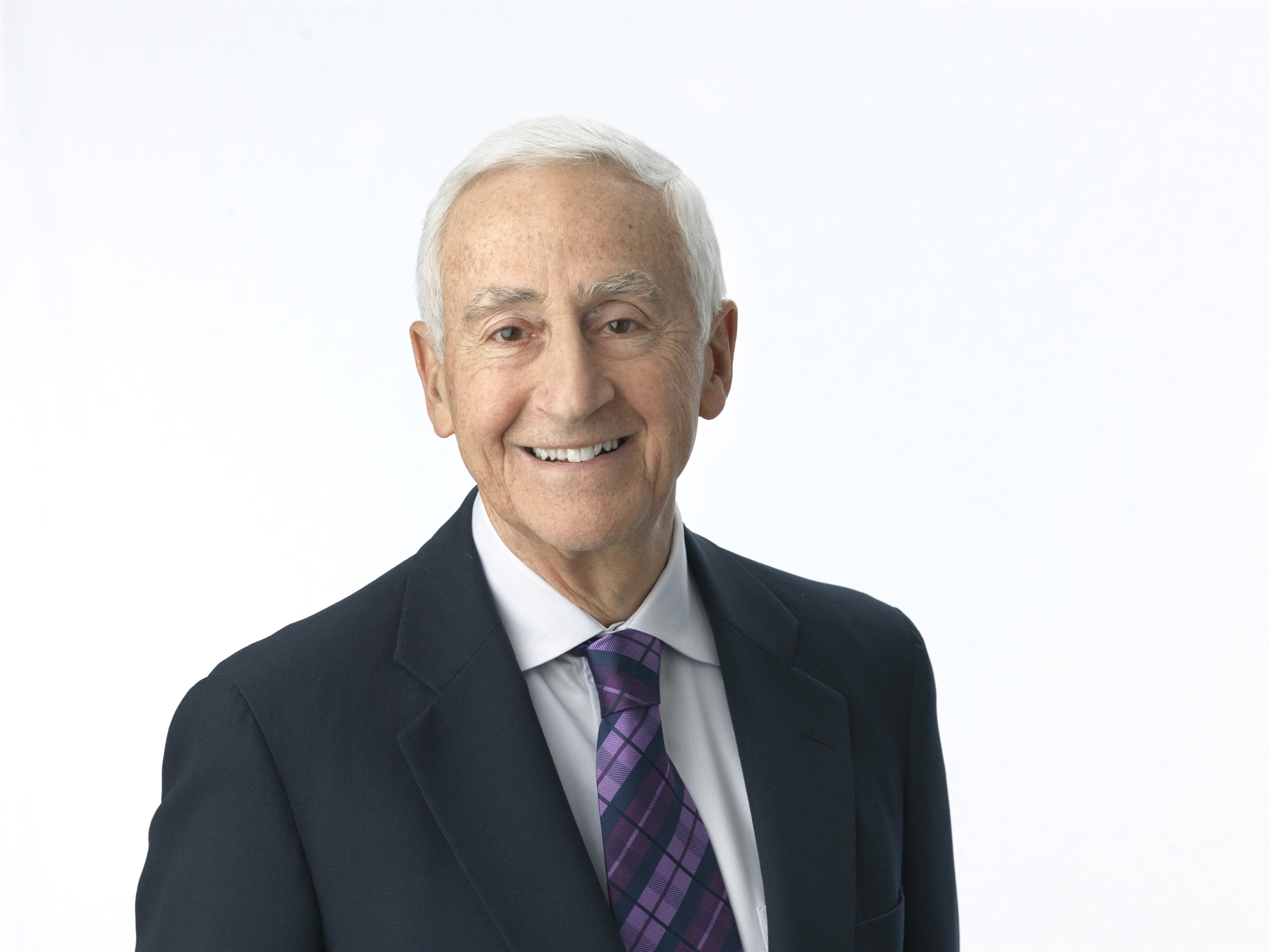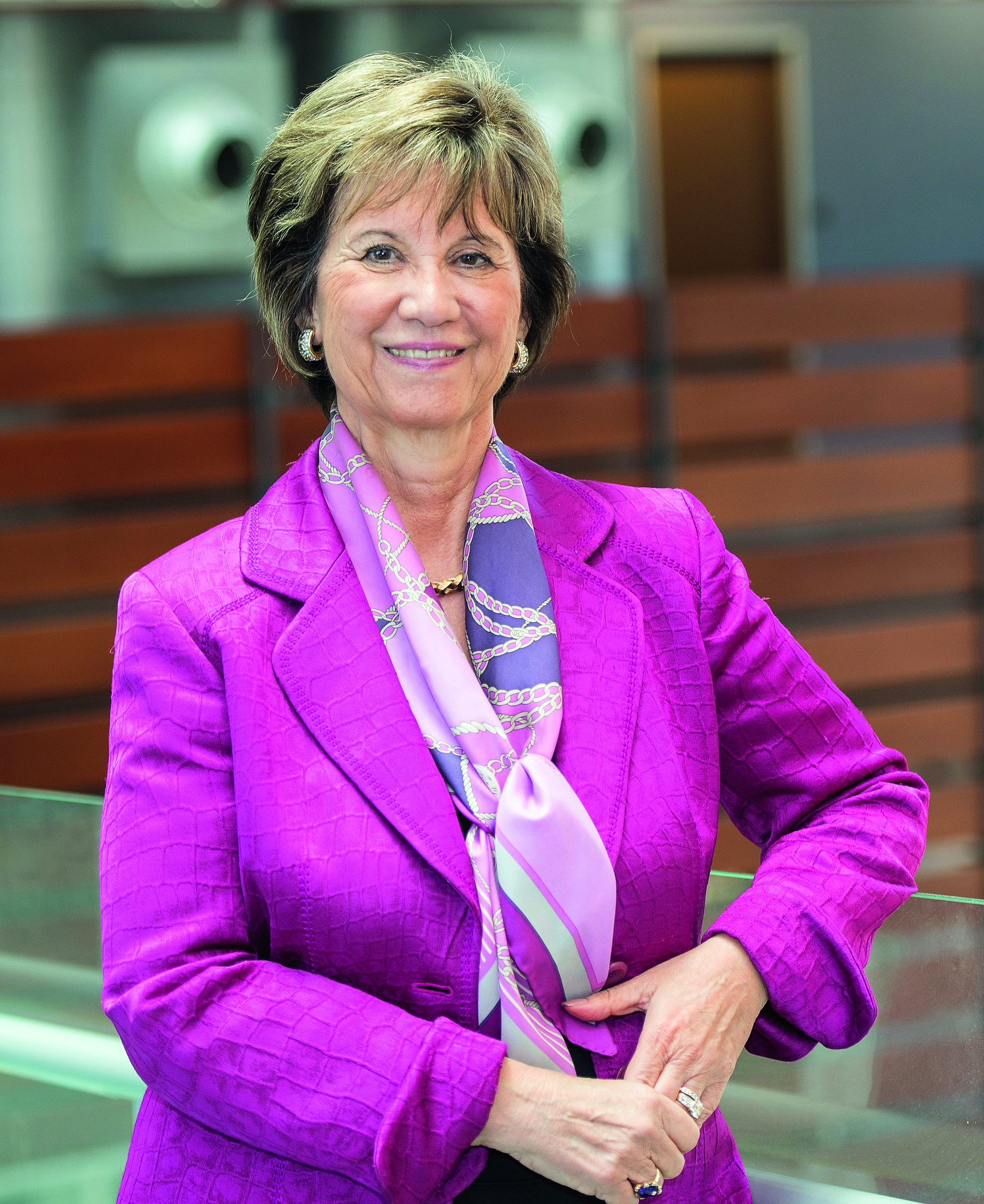
“My wife and I support students so that they can study without being tied to loans and take steps in their career, without finance being the main criterion for their choice.” Sharing his vision for the next generation of scientists with K was 93-year-old Greek-American Dr. Roy Vagelos, an iconic figure in the pharmaceutical industry, who has made another $175 million donation to Columbia University to support early-stage physicians. stages of their careers, as well as PhDs. This generous donation by the couple Roy and Diana Vagelos is not the first in Colombia, which is why the School of Medicine bears their name, the Vagelos College of Physicians and Surgeons.

Born in the US to Greek immigrant parents, Roy, or Pindaros as he was baptized, grew up inheriting his biological grandfather’s degree from EKPA. “He died very young, and his children immigrated to the US without ever having time to study.” In the Vagelos family, ancient names were the norm. “My father’s name was Herodotus, and my two uncles’ names were Homer and Thucydides.” Vagelo is actively engaged in catering, and Herodotus’ father is engaged in the sale of sweets and ice cream. “Later he opened a restaurant in New Jersey where we all helped him.” Many senior Merck executives are regular customers there. When young Roy clears their tables and chats with them about the weather, he never imagines that he will one day become Merck’s chief executive. “When I was preparing to go to university, I consulted with these clients,” he tells K through zoom.
Roy starts by studying chemistry, but his interest quickly shifts to medicine and biochemistry. “Personally, I did not have any difficulties with my studies, because I studied well and received a scholarship from the very beginning,” he notes. “But I know this doesn’t apply to all kids who have academic aspirations.” It is estimated that 50% of students in the US have taken on some form of debt. Tuition for undergraduate studies ranges from $30,000 to $35,000 at public universities and $45,000 to $55,000 at private universities, with the cost rising even higher at master’s.
As a teenager, he cleared the tables of the executives of the company, which he later became the manager of his father’s restaurant.
At Columbia University, Roy met his future wife Diana, also of Greek origin, then a student at Barnard College. “We got married in 1955, we would have done it sooner, but our finances didn’t allow it.” Thanks to Diana’s first good salary, the two young people finally connect in their lives in a small apartment on the ground floor.
Roy started at Massachusetts General Hospital, became a researcher at the National Institutes of Health (NIH), and then chaired the biochemistry department at Washington University in St. Louis before becoming a senior executive at Merck. During his tenure, the pharmaceutical industry will produce leading drugs for cholesterol and blood pressure, produce new antibiotics and vaccines. “I have retired from my ten-year CEO position,” says Dr. Vagelos, who remains chairman of Regeneron’s board of directors.
“I chose the job that aroused my interest, and not the one that would bring me the best salary. I wish modern scientists had that “luxury,” he says. Too many students today end up “already in huge debt, say $100,000, which limits their horizons.”
As he elaborates, “these young people will avoid participating in research, getting a doctorate, or working as a pediatrician, as these are the least profitable options.” However, if someone relieves them of this burden, “they will be able to follow their inclinations and their desires, and this will benefit the whole society.” He himself, who has been a financial supporter of educational institutions since the 1980s, often keeps in touch with younger professionals who have realized their dreams thanks to his sponsorship. “They are very talented kids and I’m very proud of them.”
Together, the Vagelos donated almost $600 million to the Universities of Pennsylvania and Columbia, where they both attended as young adults; several faculties are named after them. Their goal is full financial independence for medical students, support for researchers, advancement of women in the sciences, and climate change research. “This is the second question in a row that worries me,” says Dr. Vagelos, head of the Climate Schools at Columbia and Pennsylvania Universities. “I believe in people and their potential, they are capable of great things, and I dream that our donations will be a legacy to improve the health of the population.”

Search for mentors for young scientists
“It is important that young colleagues learn how to get a job, how to write papers, and also how to say no, a problem that women scientists face, as they feel that if they give up any additional task, it will be perceived as a weakness. Dr. Litza Crania, professor and director of cardiovascular biology at the University of Cincinnati School of Medicine, wanted to strengthen these skills by donating to biology students at the University of Cincinnati. “I thought about it ten years ago, and three years ago I communicated my desire to the competent committee,” says the Greek professor, who is believed to be the only Greek woman in the US to make a donation on her own, “K”. . At the annual symposium that now bears her name, the master mentor will guide PhDs, postdoctoral fellows and faculty on their next steps. An initial guest tutor presentation is followed by a roundtable discussion with four professors, followed by a two-hour period devoted to individual counseling for each participating young researcher. The Kranias Symposium on Early Mentoring will be funded through interest received from her donations. “It really touches me because I’ve always wanted to help young people get better.” She still remembers with gratitude the full scholarship that brought her from Thessaloniki to America, where she was to write a brilliant scientific career. “I attended the University of Chicago, a top-five at the time, which had tentatively decided to accept applicants from schools outside the US.” Thus, her excellent academic performance indirectly paved the way for subsequent foreign students.
Golden List of Greek Sponsors of US Universities
American society is well aware of the concept of “giving back,” a gesture of practical gratitude toward entities from which one has previously benefited. “Already after graduating from a university institution, young professionals begin to support their university, even with small amounts, for example, $ 100 a year,” says Dr. Francis of Drexel University and Dean Emeritus.
Greek immigrants to the United States have been distinguished from the beginning for their commitment to learning and their desire for second-generation learning. Therefore, the second, and now the third generation, which has already risen strongly in social and educational terms, systematically acts with smaller or larger donations, depending on the potential of the individual donor.
“Greeks donate first to the church and related organizations, such as the Theological School in Boston,” notes Dr. Tzetzekos, “and secondarily to university institutions with which they are personally connected to some extent. It is noted that since higher education in America relies on private funds, significant tax incentives are provided to donors. In this way, the interested party comes into contact with the university so that its vision coincides with the needs of the institution. “Sometimes their desire is to donate was completed after death, but usually the donation begins during life and continues thanks to the interest accrued on the sums.
Dr. Chetzekos acknowledges that the problem of borrowing is more relevant for young Americans. “However, I understand that they are not given realistic career guidance, they are directed to follow their passion without explaining to them that there are certain career areas that provide a good life in the US, where the cost of living is objectively high. ”
The list of donors is long and interesting, because in addition to those who support the life sciences, there are also many who want to support classical research. John Kalamos founded the Department of Philosophy at the University of Illinois with the goal of teaching students ancient Greek philosophers. Many Greek language programs in the US are funded by Angelo Tsakopoulos, who founded the chair of Greek studies at Stanford University. Nick Carabots founded the Archeology Program at the University of Arizona, which is excavating the Peloponnese to uncover the Temple of Lycaeus Zeus while covering the salary of a professor of ancient Greek archeology.
Nick Vidalakis has created a scholarship program for those students who want to do an internship in his native Crete. The existence of the Cancer Research Center at the University of Iowa is due to John Papajon, who sponsored many programs at said university. In Pittsburgh, John Rangos, among other things, founded a children’s hospital. The Behrakis College of Health Sciences and School of Pharmacy operates at Northeastern University, funded by the Greek diaspora. Boston University is offering the Alexis Gavras Scholarship to Greek or Greek American students. Marble inscriptions with the Greek surnames of the donors, combined with a strong presence of scholars of Greek descent, lend the Universities of the United States the stigma of the Greek American community.
Source: Kathimerini
Ashley Bailey is a talented author and journalist known for her writing on trending topics. Currently working at 247 news reel, she brings readers fresh perspectives on current issues. With her well-researched and thought-provoking articles, she captures the zeitgeist and stays ahead of the latest trends. Ashley’s writing is a must-read for anyone interested in staying up-to-date with the latest developments.